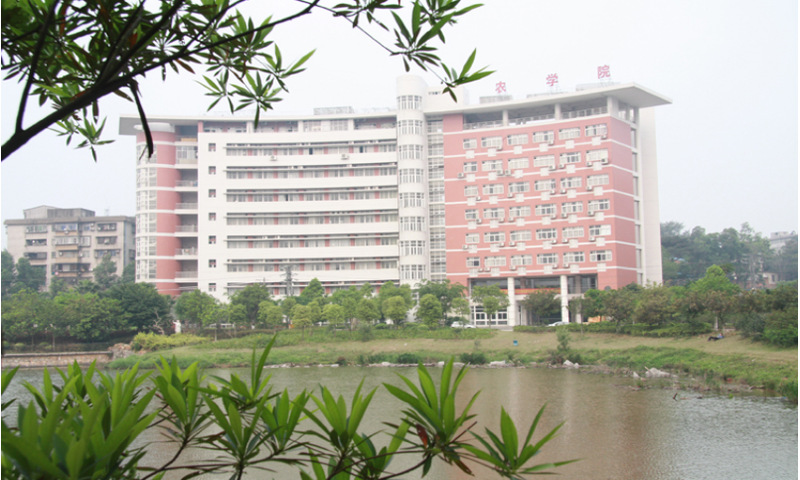
The college of agriculture is one of the oldest colleges in South China Agricultural University. Growing with the century-old school and having profound academic background, high quality and professional teachers and good research platform, the college of agriculture has made gratifying achievements in talent training, scientific and technological innovation and social service.
In 1909, The college's predecessor, The Agricultural Laboratory of Guangdong Province was founded. In January 2015, in order to adapt to the needs of discipline development and the construction of a high-level university, the university made discipline adjustment and established the present college of agriculture.
At present, the college of agriculture has two doctorate authorization first-level disciplines and Post-doctorate R&D Bases, namely, crop science, and plant protection, 6 doctorate authorization secondary discipline (two national key disciplines, two the ministry of agriculture key disciplines and two province-level key disciplines), namely, crop genetic breeding, genetics, crop cultivation and tillage, plant pathology, agricultural insect and pest control, and pesticide science, and 13 master's degree authorization centers, namely, crop genetics and breeding, genetics, crop cultivation and tillage, plant pathology, agricultural insect and pest control, pesticide science, zoology, microbiology, crops, seeds, plant protection, agricultural resources and utilization, and agricultural facilities. There are 6 departments now: plant breeding, crop science and technology, seed science and technology, entomology, plant pathology, and pesticide. It offers three undergraduate majors, including agronomy, seed science and engineering, and plant protection among which agronomy and plant protection are national characteristic majors. And there are two Ding Ying Innovation Class in agronomy and plant protection. It has a staff 194 strong, among whom there are 51 professors and researchers and 58 associate professors and associate researchers.
Currently, the college has 2,177 full-time students, among which 187 are doctoral candidates, 525 master candidates and 1,465 undergraduates.
The college also has a number of national and provincial research platform, including state key laboratory for conservation and utilization of subtropical agro-bioresources, the national plant breeding in space engineering technology research center, Guangdong key laboratory of plant molecular, national soybean improvement center Guangdong sub-center, the ministry of agriculture national center for new plant variety testing Guangzhou sub-center, the ministry of agriculture key laboratory of integrated pest management, open laboratory of natural pesticide and biochemistry, engineering technology research center of ministry of biological control and other 14 province-level key laboratory (engineering center). In addition, the college also has the largest pest control herbarium in China, a tropical subtropical insect herbarium with more than 50,000 specimens, a tropical subtropical plant disease herbarium with five species of about 103 crops, and an Oryza germplasm conservation base with 1,239 wild rice resources.
Relying on these platforms, the college has received 30 national and provincial scientific research achievements awards, 192 authorized invention patents, 11 species approval, 25 species protection, and over 610 SCI papers published in journals such as Nature Genetics and PNAS from 2011 to 2015. In addition, more than 20 scientific and technological achievements were transformed in rice and soybean breeding, tobacco cultivation techniques, biological pesticides, liquid fertilizer and slow-release fertilizer from 2011 to 2015, making great contributions to the development of modern agriculture in China, especially in south China.
College will insist on the target of innovative agriculture, fine agriculture, energetic agriculture and harmonious agriculture, continuously improving the quality of teaching and scientific research and building a domestic first-class research and teaching college with international influence.

